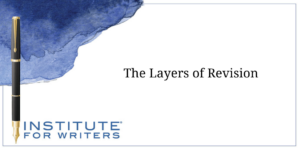
The Layers of Revision
To many, writing is revision, and most writers revise their manuscripts numerous times before they’ve shaped it into the best version that it can be.
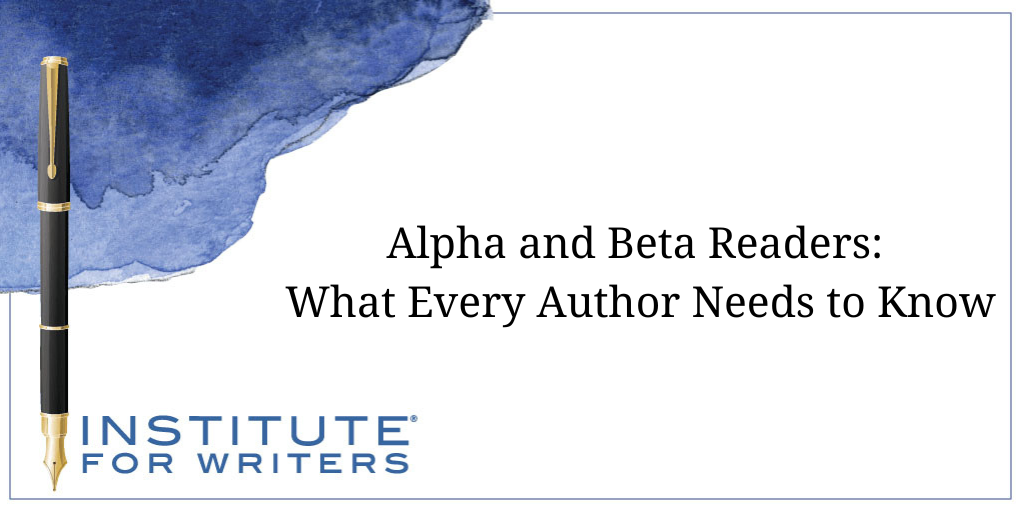
What is an alpha reader versus a beta reader? Where do authors find them, and when are they useful? This IFW article breaks down everything writers need to know about alpha and beta readers for your next writing project.
Alpha readers are usually the first to see your completed draft, so your story is often a bit rough—and that might be putting it lightly. Because it’s an early draft, alpha readers must be able to look past punctuation and grammar errors. They must be able to see the “diamond in the rough” and understand the big picture.
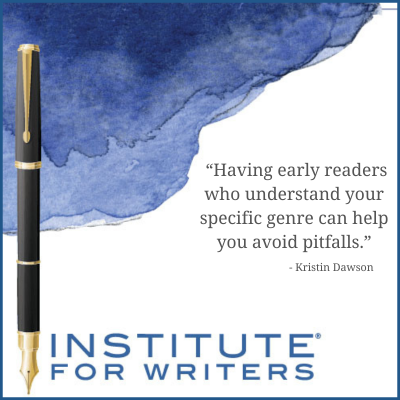 Alpha readers should know the genre well and understand story structure. They’ll be giving broad feedback on not just the foundational nuts and bolts (characters, plot holes/problems, emotional arcs, theme, etc), but they’ll also be giving you feedback on potential reader expectations. For example, if you’ve written a romance with a tragic ending, an alpha reader who knows the romance genre will flag the ending and let you know that readers expect an HEA (happily ever after).
Alpha readers should know the genre well and understand story structure. They’ll be giving broad feedback on not just the foundational nuts and bolts (characters, plot holes/problems, emotional arcs, theme, etc), but they’ll also be giving you feedback on potential reader expectations. For example, if you’ve written a romance with a tragic ending, an alpha reader who knows the romance genre will flag the ending and let you know that readers expect an HEA (happily ever after).
Note: You’re not required to take the alpha reader’s advice, but having early readers who understand your specific genre can help you avoid pitfalls.
There’s no right or wrong way to get early/alpha reader feedback on your writing. But, I generally rely on peer feedback (from other writers) at this early stage. This IFW article discusses the pros and cons of using peer feedback. Still, I’ve found that if you have a qualified writer’s group or critique partner, their feedback can be invaluable in the early steps of your story creation.
Beta readers read your story when it’s nearly completed. When you deliver your story to a beta, it should have gone through a self-edit, plus at least one round of professional edits (probably a developmental edit and possibly a line edit). In other words, the story should be fully formed.
The beta reader should give you the “reader experience.” You don’t necessarily want other authors at this stage because they tend to look at technical elements of your story (see “pitfall warning” below). You’re looking for readers who can “immerse themselves in the story” and give you the emotional connection or experience.
 “Beta readers are my favorite part of the process. Part cheerleader, part honest critique; I love hearing all of their reactions. I connect with most of my beta readers on Instagram and use StoryOrigin for distribution and tracking. I find this feedback often helps affirm my strengths and points out directions for growth in the craft. It’s invaluable!” – speculative fiction author, Rachel Huffmire.
“Beta readers are my favorite part of the process. Part cheerleader, part honest critique; I love hearing all of their reactions. I connect with most of my beta readers on Instagram and use StoryOrigin for distribution and tracking. I find this feedback often helps affirm my strengths and points out directions for growth in the craft. It’s invaluable!” – speculative fiction author, Rachel Huffmire.
There is more information about beta readers in this IFW article. However, I would make one amendment. Find beta readers who read and enjoy your subgenre. If you ask Aunt Jessica to read your military sci-fi novel, but she prefers women’s literature, she is unlikely to connect with your book. More importantly, she doesn’t know the genre and won’t have insightful feedback for you. Readers of your subgenre are more likely to connect with your story and know what readers in your target market also want!
How many beta readers are sufficient? Beta readers are great, but the feedback can quickly become overwhelming. For this reason, I recommend no more than five betas.
How does one find beta readers? Put the word out that you’re looking for beta readers and your specific requirements. Here’s an idea of how you can do this:
 Once you have your beta readers, set their expectations before they start reading. Let them know what you’re looking for (aka: at this point, you do not care about spelling or commas; the story is still going to a proofreader). You’re looking for “reader experience.” Here are some suggestions on what you might ask the readers:
Once you have your beta readers, set their expectations before they start reading. Let them know what you’re looking for (aka: at this point, you do not care about spelling or commas; the story is still going to a proofreader). You’re looking for “reader experience.” Here are some suggestions on what you might ask the readers:
Beta readers are great because they find things the author missed. Even outside editors can also miss important elements, especially when focused on their specific responsibilities within the writing. Readers might point out that the quirky side character suddenly becomes serious or drops out of the novel’s second-half scenes. Or perhaps they got bored and never finished the manuscript; you want to know where they put the book down so you can analyze what isn’t working.
It’s also important to know what is working so you can keep those story elements intact as much as possible. In trying to fix something else, we can inadvertently break other “reader favorite” parts of the story. Having those “favorite spots” noted can help writers in multiple ways in the final edits.
Pitfall warning: if you can, avoid getting other writers as your beta readers, this is a bonus. Often, writers get into “writer mode” and focus primarily on the structure and technical elements. Your editor will do this for you later. Find readers who can look at the story; in the end, only the story matters.
Beta readers provide an excellent opportunity to discover what isn’t working in your story. This is your chance to go back and make changes to the story to elevate it before it goes to the proofreader. I do this step before copy editing because I want to leave room to make sweeping changes without introducing errors beyond the proofreader’s scope.
If your alpha readers are your critique group, you will pay them by reading and critiquing their work. The golden rule comes into play, “Critique unto others as you would like them to critique unto you.” Put in the time and energy to give your fellow critique partners your best work.
 If your alpha or beta readers are reader-fans, the compensation varies. The most common compensation is simply the opportunity to see the book early and the ability to impact the story. If you are an author that readers are passionate about, this opportunity is worth a lot. Some authors send final, physical copies of their books to their long-time beta readers. Some beta readers give feedback as a profession and will have rate sheets. At the very least, thank your alpha and beta readers in the acknowledgments in the back of your book. Make notes so you don’t forget anyone.
If your alpha or beta readers are reader-fans, the compensation varies. The most common compensation is simply the opportunity to see the book early and the ability to impact the story. If you are an author that readers are passionate about, this opportunity is worth a lot. Some authors send final, physical copies of their books to their long-time beta readers. Some beta readers give feedback as a profession and will have rate sheets. At the very least, thank your alpha and beta readers in the acknowledgments in the back of your book. Make notes so you don’t forget anyone.
Many authors work with the same early readers for years—for multiple book projects—and become good friends. These might be some of your favorite relationships within your publishing career!
Utilizing alpha and beta readers can greatly benefit your story, especially when starting in the industry. Early readers can help authors increase the end quality of the story without significantly increasing their spending.
The definition and expectations for alpha and beta readers can shift over time, genre, and market, so thoughtful communication goes a long way.
If you want to know more about the publishing process, including finding ARC readers, check out the two-part series on indie publishing in IFW in the coming weeks.
Now that you know the industry lingo and basic expectations, go find the best alpha and beta readers for your project!
Kristin J. Dawson is a non-recovering chocolate and romantic English movie addict who loves to read science fiction and fantasy. You can find her most often indulging her favorite things at 2 am — night owls unite! Kristin writes high fantasy with political intrigue, a bit of romance, and of course, magic. She’s was a 2019 UTOPiAcon Debut Book Award Nominee and Swooney Award Nominee. When she’s not writing, taking her kids on mountain adventures, or cleaning out the chicken coop, she’s probably trying to talk her author friends into more shenanigans.
Chat with Kristin on Instagram (@KristinImagines), on Facebook (@KristinJLiterary), or her website at kristinjdawson.com.

To many, writing is revision, and most writers revise their manuscripts numerous times before they’ve shaped it into the best version that it can be.
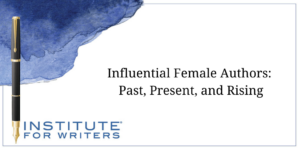
We’re going to look at influential female authors of the past, those impacting the present, and whom the industry expects to make a big splash.
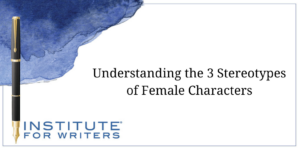
This week, we’re focusing on how we as writers can create strong female characters that others will look up to, instead of harmful stereotypes.
1000 N. West Street #1200, Wilmington, DE 19801
© 2024 Direct Learning Systems, Inc. All rights reserved.

1000 N. West Street #1200, Wilmington, DE 19801
© 2025 Direct Learning Systems, Inc. All rights reserved.

1000 N. West Street #1200, Wilmington, DE 19801
©2025 Direct Learning Systems, Inc. All rights reserved. Privacy Policy.
1 Comment